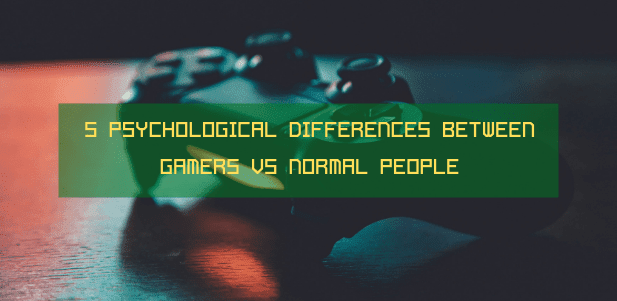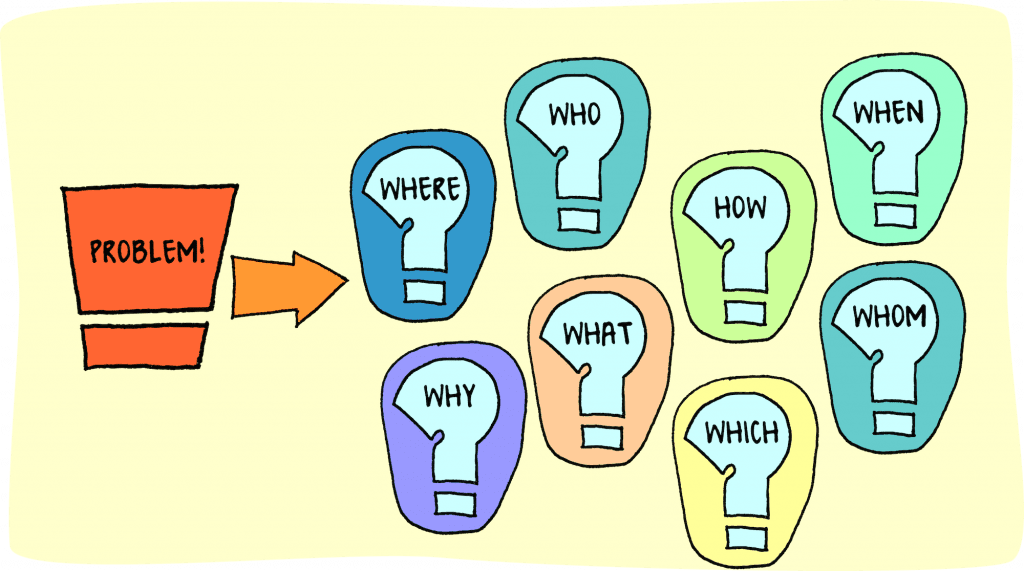The 5 Psychological Differences Between Gamers vs Normal People
As human beings, we have the inherent needs for relatedness, competitiveness, and autonomy. Anything that has a combination of those three qualities is appealing to our minds.

Psychological Differences Between Gamers vs Normal People
Psychological Differences Between Gamers vs Normal People
Games provide us with full autonomy, boost our competitive instincts, and also gives a sense of relatedness with our opponents.
Therefore, numerous people around the world enjoy playing games on a frequent basis. Gamers are the people who are pretty good at one or more games that they play. Getting better at a game basically unbars new areas of our brain and gives it more functionality.
There are some fundamental psychological differences between a gamer and a normal person.
1) Improved Cognitive Faculties
All games are based on a quest that needs to be completed in order to win the game.

https://ricepsychology.com/wp-content/uploads/2014/04/cognitive-processing-disorder.jpg
Hence, they involve numerous challenges and hurdles that need planning, speed, and proper execution to achieve.
For example, the Rummy card game requires you to create valid sets and sequences with the cards in your hand.
You must lose all the cards at your hands before your opponents. Therefore, a gamer’s mind is immersed in this experience and with practice, becomes much more cognitively capable.
For example, gamers are much better at visual-spatial skills, task-switching, etc. when compared to normal people.
2) Better Control & Self-Awareness
Since gamers are invested entirely in the game’s scenario to attain the motive, they get much better over time at controlling their thoughts and instincts.
For example, when playing Rummy, you must have the skill to guess the cards at your opponent’s hands and plan ahead so as to strongly control the game.
Also, gamers are much more self-aware because they always know their stand. In Rummy, a player can tell if he/she will win the game based on the last few moves.
Therefore, gamers have greater control and self-awareness in contrast to normal people.
3) Efficient Problem-Solving Skills
Games are essentially a puzzle or a problem that a player must solve very efficiently so as to attain a high score and win.

However, these problems are not that easy to solve. It takes a lot of planning and contemplation before making a move since each move has its consequences.
For example, players take a while before moving a chess piece or dropping a particular card in rummy, and at that moment they examine all possible outcomes of their action.
Therefore, due to this habit gamers are able to solve everyday problems much more effectively than non-gamers.
4) Reduced Sensitivity to Fear & Surprise
According to a recent study, a group of gamers and non-gamers were observed by subjecting them to a scary virtual reality game.
While noting the performance, the fear and surprise levels of the participants were also measured.
After analysis, it was found that non-gamers were much more sensitive to fear and surprise, while gamers showed reduced sensitivity to those emotions
5) Better Stress Handling
The process of cracking the code of a game and then going on to win it is a stressful process. There are numerous things that can go wrong with any wrong move you make.

However, by upping the levels of a complicated game, gamers become much more adept at handling stressful situations.
Also, when a game is won, our basic need for appreciation is recognized and our brain releases dopamine.
Therefore, gamers use the flow of games to handle their negative emotions better than normal people.
Verdict: A gamer’s brain is comparatively more responsive to non-gamers. Although, the positives are only beneficial if you are not spending an ungodly amount of time over it.
Becoming a gamer and unlocking your brain’s great potential is possible while playing in moderation.










